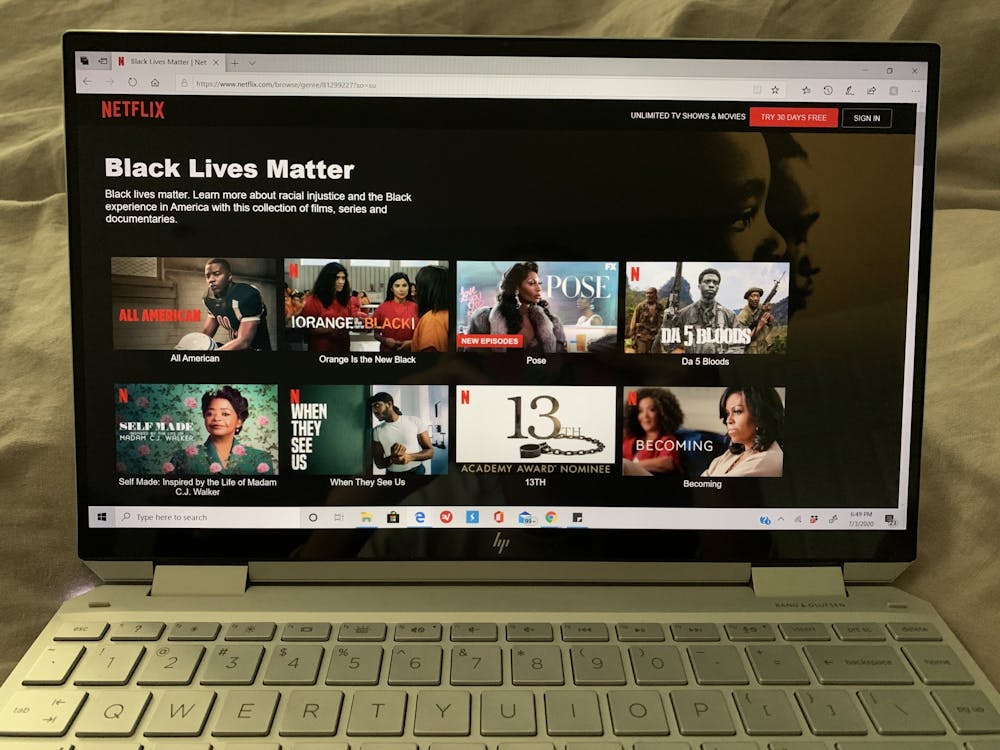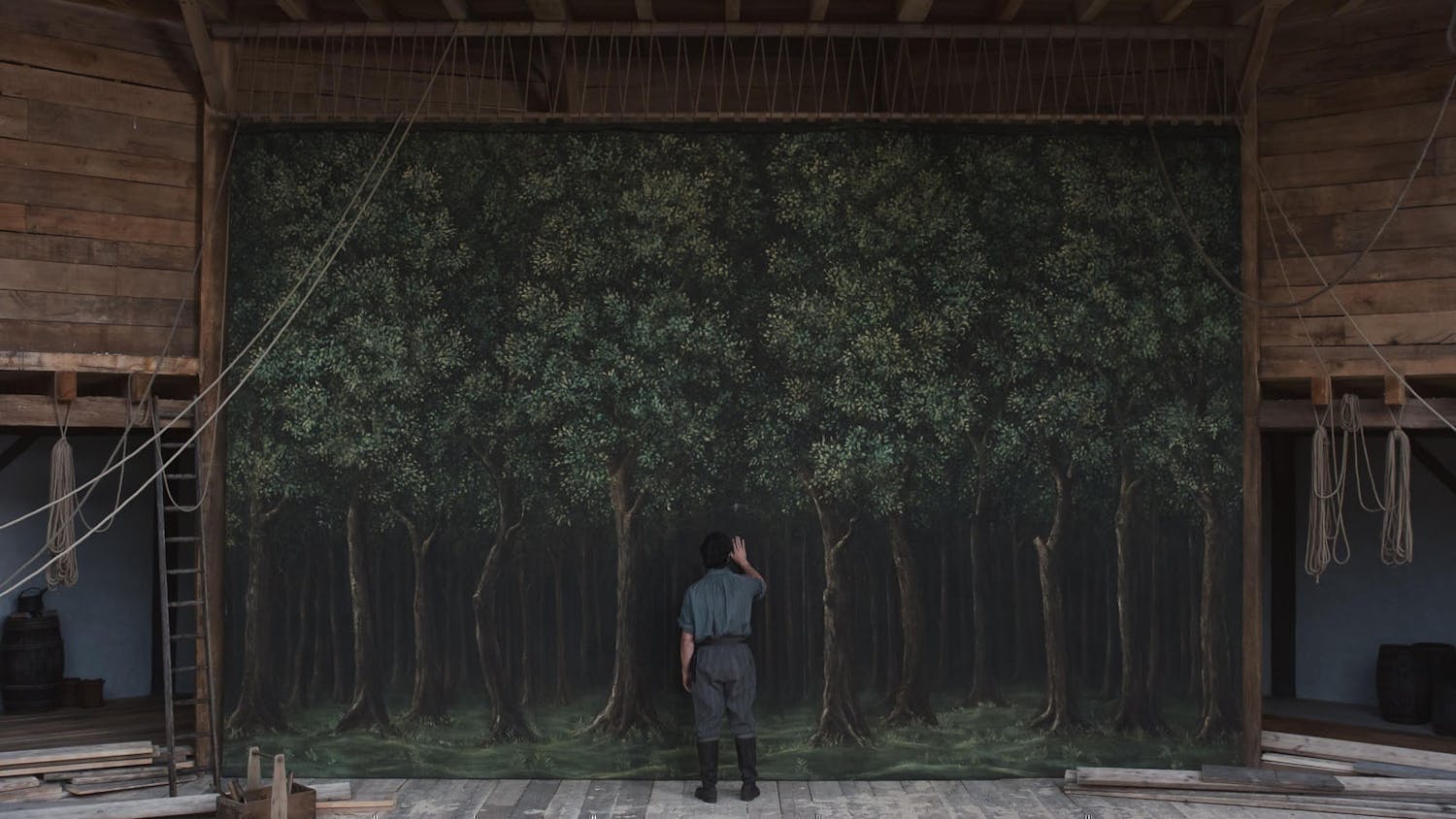George Floyd’s killing by police last month in Minneapolis spurred outrage and protests across the United States and the world around deep-seated, systemic racial injustice. As people sign petitions, call representatives and raise millions of dollars of funds, many also seek to educate themselves about racism and Black people’s experiences living in this country.
Resources from books to shows, movies to art, podcasts to articles and even Twitter threads, are circulating around social media. Films like “I Am Not Your Negro” and “Just Mercy” are free to the public to encourage education, and streaming services like Netflix and Hulu have made collections to highlight the Black experience. A Netflix spokesperson tweeted about the new Black Lives Matter collection: “When we say ‘Black Lives Matter,’ we also mean ‘Black storytelling matters.’ With an understanding that our commitment to true, systemic change will take time – we're starting by highlighting powerful and complex narratives about the Black experience.”
To continue the momentum of the BLM movement, and become more informed about Black stories, check out these 10 powerful movies and series.
DOCUMENTARIES
- 13th:
Although “13th,” by renowned director Ava DuVernay, originated on Netflix, the documentary’s influence has become so great that the streaming service decided to release it on YouTube. The documentary takes an unflinching deep dive into the lasting effects of the 13th Amendment and its creation of injustices that fuel the United States’ mass incarceration problem. DuVernay weaves together archival footage, facts and figures, and interviews with influential political and academic figures to construct a powerful resource that educates, inspires, moves and holds a mirror to the persistent racism that exists in America’s criminal justice system.
Available on Netflix and YouTube.
- LA 92:
In 1991, Rodney King, a young Black man, was savagely beaten by Los Angeles police officers. King suffered skull fractures, broken bones and teeth, and permanent brain damage, and the broadcasted footage of the attack sparked national outrage. A year later, four officers who had been charged with excessive use of force were found not guilty. The verdict led to six days of riots with assaults, looting and arson broadcasted on TV news to a shocked nation. “LA 92” uses rare archival footage with no interviews or other narration of any kind to conjure up the violence and raw emotions of people who experienced the riots first hand. The dimensions of police brutality, pervasive racism in our justice system and protests provide uncanny parallels to recent unrest.
Available on Netflix.
BIOPICS
- When They See Us:
In 1989, five young Black and Hispanic men ranging from 14 to 16 years old were falsely accused of raping and assaulting a jogger in Central Park. The young men — boys, really — who were publically named the Central Park Five, were prosecuted based on police-coerced confessions and spent six to 13 years in prison. “When They See Us,” directed by Ava DuVernay, beautifully and hauntingly reenacts their stories across their entire timeline: from prosecution, to jail time, to ultimate exoneration and life afterward.
Available on Netflix.
- Just Mercy:
Based on the autobiographical book of the same name, “Just Mercy” tells the story of one of Bryan Stevenson’s first cases as a young civil rights lawyer. In 1989, Stevenson, played by Michael B. Jordan, traveled to Alabama, after hearing about the case of Walter McMillian, played by Jamie Foxx, an innocent Black man awaiting the death penalty after a wrongful murder indictment. The film is a glaring portrayal of a true story that continues to take on varying, yet familiar forms to this day.
Available for free across numerous platforms.
- 12 Years a Slave:
“12 Years a Slave” is the Oscar-winning biographical adaptation of the 1853 memoir of the same name. The story follows the life of Solomon Northup, an African American man born free in New York who is later kidnapped in D.C., and enslaved. Solomon spends 12 years in slavery before getting a chance to meet with a white abolitionist, which changes his course. The film is a horrifying and haunting portrayal of slavery’s systemic dehumanization, destruction of families and unspeakable brutality. The film also empowers the resilience and bravery of a man who risked it all for his freedom and to be reconnected with his family.
Available on Amazon.
SERIES/DOCUSERIES
- Little Fires Everywhere:
“Little Fires Everywhere” is an eight-part series based on the New York Times bestselling book of the same name. The show follows the intertwining of two very different families in a suburban town: a “picture-perfect” white family and a Black “enigmatic” mother and daughter duo upend their lives when they move to the town. Grounded in the standout performances of Kerry Washington and Reese Witherspoon, the series explores the themes of motherhood, identity, class dynamics and racism.
Available on Hulu.
The Innocence Project, founded in 1992 by two law professors, is an organization committed to overturning wrongful criminal convictions using DNA evidence in addition to advocating for criminal justice reform. Since then, the organization has managed to help exonerate 367 people, 21 of whom served time on death row. Directed by Oscar-winning documentarian Roger Ross Williams, this nine-episode series draws from a few real Innocence Project cases, shedding light on the people and injustices behind the facts and figures. The episodes are grouped into three sections, evidence, witnesses and prosecution, which dismantle the evidence previously deemed unimpeachable and systems perceived as just.
Available on Netflix.
- Dear White People:
“Dear White People” is a Netflix original series based on the film that holds the same name. The series follows a group of Black students at a predominately white Ivy League college. Characters navigate identity and personal path formation amid a terrain of misplaced activism, a culture of political correctness, social injustice and cultural bias. The series uses comedy and satire to explore race relations for young people in modern day America.
Available on Netflix.
FEATURE FILMS
- The Hate U Give
Based on the award-winning novel of the same name, “The Hate U Give” tells the story of Starr (Amandla Stenberg), a high schooler who feels as though she lives two lives. During the day, she attends an elite private school with very little diversity on the wealthy side of town. At home, she is a member of a close-knit family in a predominantly Black and underserved community. After witnessing police murder her childhood friend, mistaking her hairbrush for a gun, Starr’s world comes crashing down. Amid trauma, uncertainty and a struggle with personal identity, Starr finds her voice and advocates on behalf of her friend.
Available on Amazon.
- Selma:
“Selma,” directed by Ava DuVernay, is a historical drama based on the 1965 Selma to Montgomery marches for voting rights, led by James Bevel, Martin Luther King Jr., Hosea Williams and John Lewis. King is “demythologized” as the film presents his tactical and strategist sides alongside his flawed moments of infidelity and hesitation. As some events were rearranged for dramatic effect, some academics identify that the film is not necessarily historically accurate but it is historically correct. “Selma” provides a gripping and powerful look into the civil rights movement while also unveiling the humanity behind civil rights figures.
Available on Amazon.





